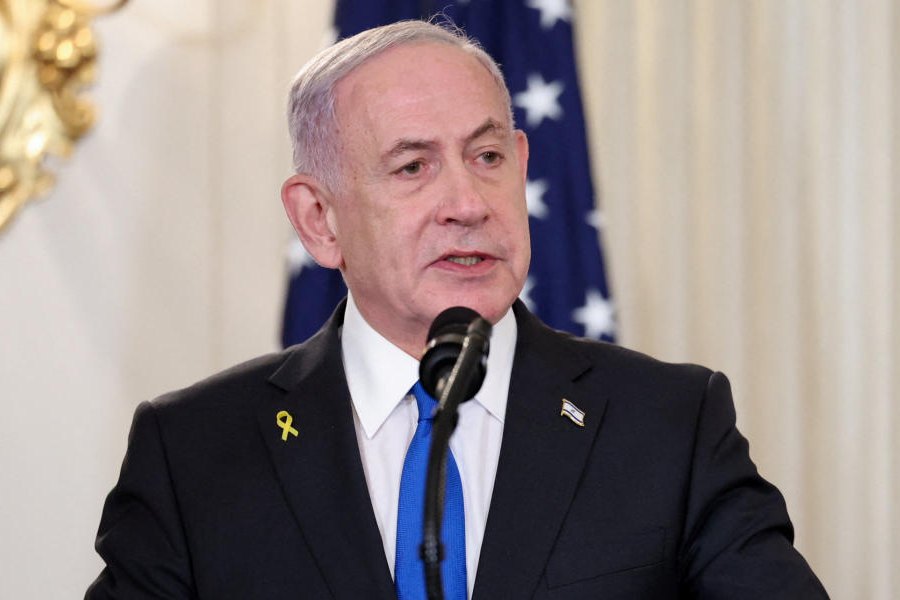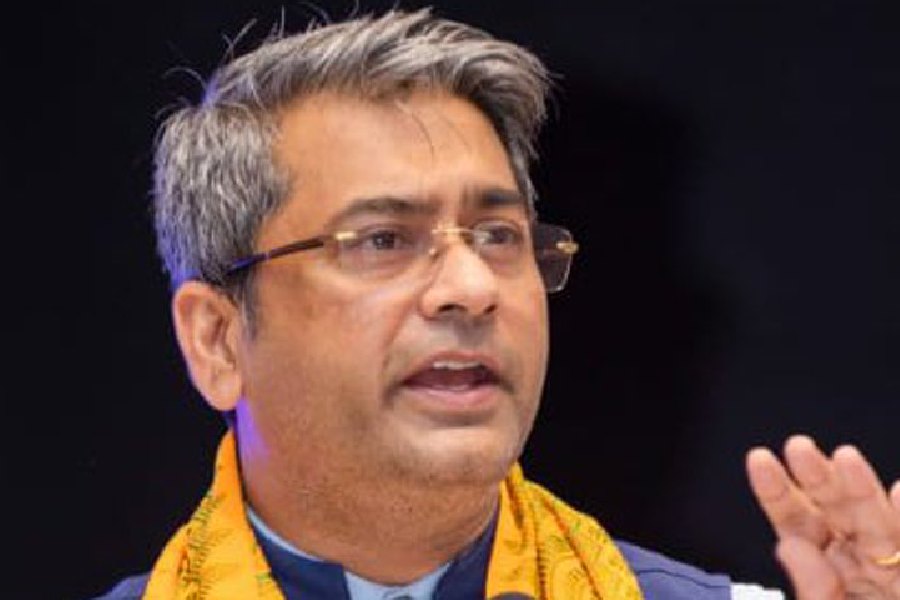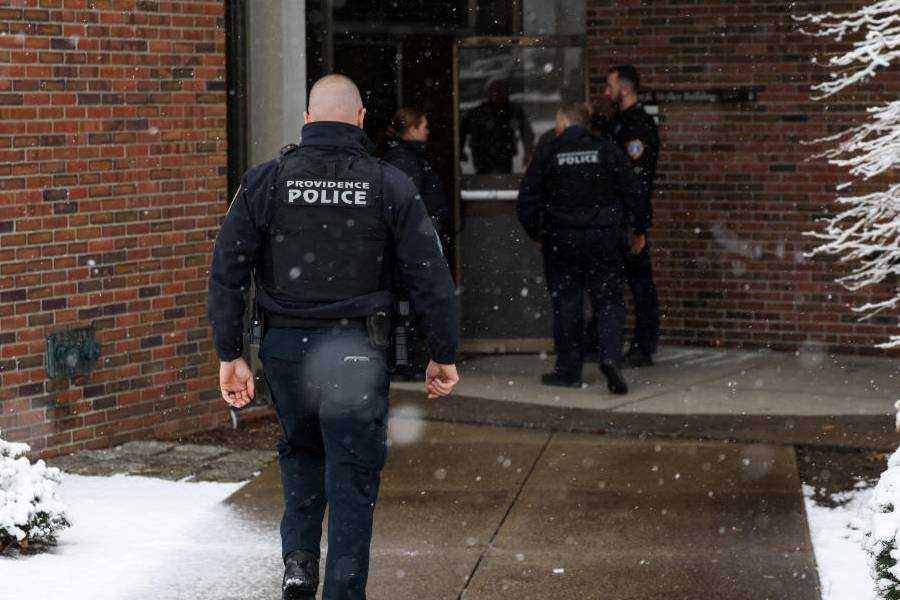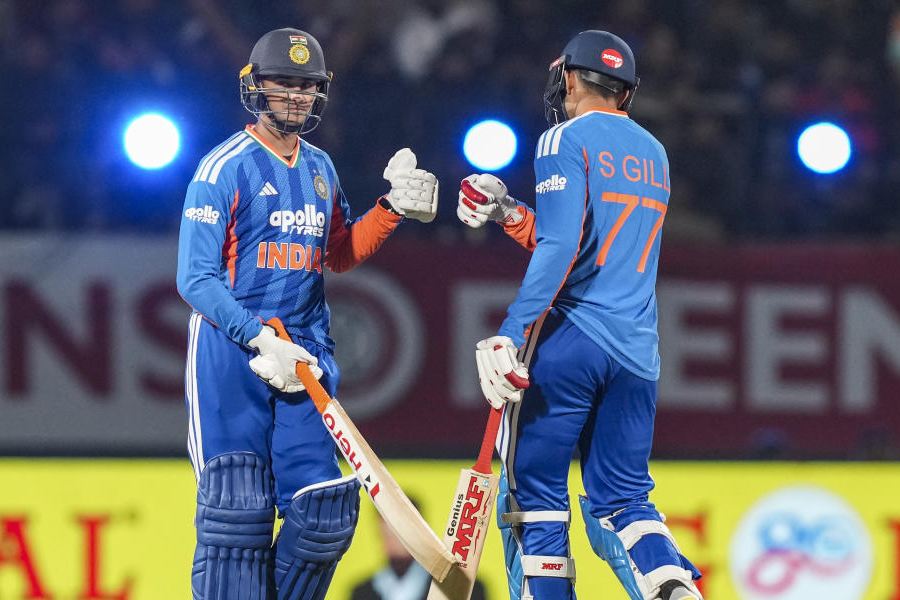 |
The celebrations haven’t ended. At Arun Jaitley’s office in central Delhi, someone is distributing laddoos, while groups bearing bouquets and gifts are waiting to congratulate the man who scripted the Bharatiya Janata Party’s success in Karnataka last month. A man in a violent red and orange dhoti-kurta insists on garlanding him and Jaitley is equally insistent — smile firmly in place — on merely taking the garland in his hand.
My appointment is clearly jinxed as 56-year-old Jaitley leans against the arm of the sofa and puts his feet up, settling down for his ritual informal chat with journalists after the daily press briefing. That’s when the gregarious college boy in Jaitley comes to the fore. His sharp political insights are then peppered with pithy one-liners, jokes which have him convulsing with laughter more than his assembled audience. He occasionally mimics other politicians. He has another meeting of the Delhi District Cricket Association (DDCA) of which he is president. Our meeting is rescheduled for later at the India International Centre, where Delhi’s intellectual elite chill out.
Jaitley is equally at home there, lounging on the cane sofa, regularly waving out to people, Louis Vuitton pen peeping out of the pocket of his uncrumpled blue pin-striped kurta. We talk about his golden touch in elections. Well, that’s all he wants to talk about too. The management of an election, he says, is turning into a science.
“An election manager must realise that he is neither the candidate nor the leader of that campaign.” He shouldn’t be addressing press conferences or projecting himself. “The second principle is to get a realistic assessment of the state.” Relying only on party structures won’t do. One must be accessible to candidates and party workers, he says. Feedback also comes from interaction with the common people and regional correspondents. And, finally, there’s psephology. All this, he stresses, helps the election manager to get a sense of the chances of a candidate, the issues to highlight and assess whether an alliance is needed.
Winning an election on an anti-incumbency plank is easier, he feels, because the party in the opposition only has to win by default and merely make the government lose by tapping into the anger of the people. Getting a party in power to stay on is more difficult. “An incumbent government wins only if people have a high comfort level with either the performance of the government or the leader.”
|
The trick where there is a tall leader, he says, is to “underplay your candidates in constituencies and make the leader larger than life, so that the voter thinks that in all constituencies, it is a referendum on the leader.” That’s what he did with Narendra Modi in Gujarat in 2002 and 2007. Sometimes, the personality projection has to be nuanced. In Karnataka, over-projection of would-be chief minister B.S. Yeddyurappa would have limited the BJP to one caste, so his publicity was tempered with central BJP leaders in some cases and state leaders in others.
But all this will work only when a party — or an alliance — is among the two key players in a state. An election manager and the campaign he designs can only give a cutting edge.
So how come, I finally manage to butt in, he hasn’t contested or won an election since he stood for president of the Delhi University Students Union (DUSU) in 1974? “Because my party has never asked me to contest elections. And I’m quite happy either way.” Or was it because he doesn’t have a mass base, a criticism the late Pramod Mahajan also faced? That’s not true, he counters, pointing out that the Delhi, Punjab and Madhya Pradesh units of the party want him to contest from those states. He and Mahajan, he explains, became general secretaries at a very young age and got embroiled in organisational matters. “On the eve of every election, people would say, if you contest, who will help us contest. Our decency in agreeing to the request should not be interpreted as our weakness.”
It’s been a 38-year-long eventful journey in politics for this son of a Delhi-based lawyer who was a strong Jan Sangh sympathiser. He became a member of the Akhil Bhartiya Vidyarthi Parishad, the youth wing of the erstwhile Jan Sangh, when he joined Shri Ram College of Commerce in 1970 after schooling at St Xavier’s, Delhi.
He even briefly flirted with Marxism at high school and college. “At that age you get attracted to the romanticism of the Left.” That lasted barely a few months. He didn’t like the violence of the Naxalite movement and the restrictions on personal freedom. The next stop was Delhi University’s Law Faculty and the DUSU presidentship. He plunged into Jayaprakash Narayan’s Navnirman movement and became national coordinator of the committee for student and youth organisations.
The day after the Emergency, he courted arrest after burning an effigy of Indira Gandhi, following a dramatic escape from the back door of his Naraina residence the previous night as his father engaged the police that had come to arrest him in legal niceties. He remained in jail till the end of the Emergency. “My parents were quite supportive. If I had succumbed to pressure and returned, they would have hated it.”
For ten years from 1977, he concentrated on his work and family, even as he remained involved with the party. “I wanted to establish myself as a lawyer. I had no intention of getting into full-time politics. I’m still not in full-time politics except when I was minister.”
The mid-1980s were heady days. As Indian Express proprietor Ramnath Goenka’s lawyer, he fought his legal battles with the then Congress government. He, along with S. Gurumurthy, drafted the 10 questions that Ram Jethmalani put to the Rajiv Gandhi government every day after the Bofors scandal broke out. After facilitating meetings between BJP and Janata Dal leaders on seat adjustments in the 1989 elections, he joined the National Front government as additional solicitor general. That got him involved in the investigations into Bofors and other scandals that rocked the country at that time and in trying to save the government when it started tottering in the wake of L.K. Advani’s rath yatra and his arrest in Bihar.
How does he reconcile his cosmopolitan demeanour with the Ayodhya movement or the hardline Hindutva of the BJP? “I am very uncomfortable when it leads to violence, deaths and human misery.” But he has been studying the Ayodhya issue at length and says there is enough evidence about the existence of a temple at the Babri Masjid site before 1528.
Politics occupies only a limited calendar in his day. Law and cricket account for the rest. He’s among the most sought after lawyers on matters ranging from the Constitution to corporate affairs. “I always joke that politics for me is an office of loss, rather than of profit,” he grins.
As DDCA president, he has been instrumental in building a new stadium at Delhi’s Ferozeshah Kotla grounds, with a health club, restaurant and bar. He’s not a film or music buff, though of late he’s got interested in the Hindi film music of the 1960s.
Midway through the conversation, former election commissioner G.V.G. Krishnamurthy walks up and greets him, admires his huge gold watch and admonishes him for putting on weight. Jaitley ruefully agrees — and immediately orders some chaat papri. He’s had to watch his eating ever since a heart operation two years ago, sticking now to home-cooked vegetarian food and giving up his favourite saag meat at Gaylord’s in Connaught Place. “All that has gone,” he grimaces.
I dare to ask about the watch. “It’s not a Rolex,” is all that he’ll say, referring to the stories of his watch collection. Nor will he answer any questions about his rumoured collection of Mont Blanc pens and reminds me that my time is up. He’s got a flight to catch; he’s heading off on a three-week holiday overseas with wife and lawyer daughter, while his son, a law student, does a summer course.
He’s firmed up some things to do on his return as we chat. Someone has been invited home. One television anchor has been promised an interview. Another anchor who’s sitting with his wife yells, “Arun, are you joining us?” As Jaitley walks to his table, he’s accosted by someone else. Will he catch his flight?











